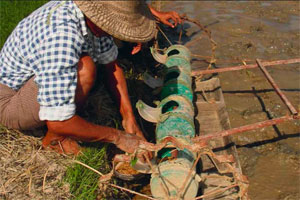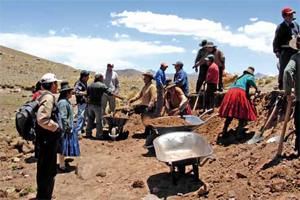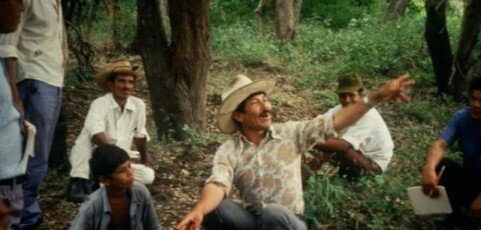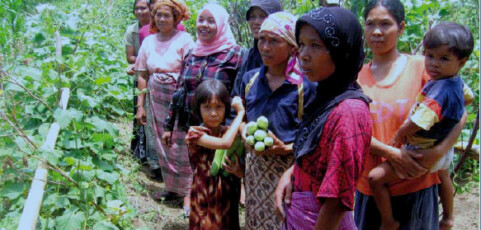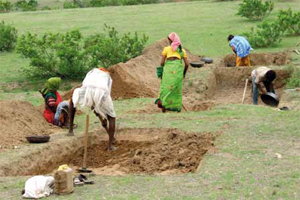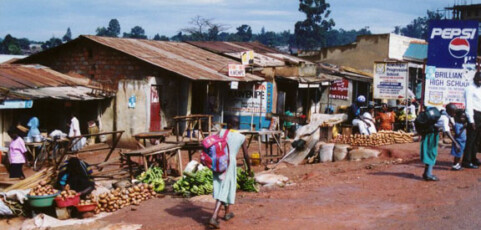Between 2004 and 2010, the Groupe de Recherche et d’Echanges Technologiques (GRET) supported the introduction and dissemination of SRI in Myanmar’s Northern Rakhine State, as part of a series of projects aiming at ensuring food security. Read more
Dams and alpacas in the Peruvian Andes
In addition to severe losses in the mountain soil’s fertility, climate change is easily visible in the Peruvian Andes: the glaciers which feed all the rivers, and the snow on the mountaintops, are noticeably getting smaller, less and less water is flowing down into the valleys. The water harvesting approach is proving susccessful to cope with this problem and strenghthen local organizations.
Measuring farmer’s agroecological resistance in the wake of Hurricane Mitch
This study, published in 2001 by IIED, is the outcome of a participatory action research carried out in cooperation with the Campesino a Campesino, a farmer-led sustainable agriculture movement in Latin America. It compares the sustainability of conventional to agroecological farms after Hurricane Mitch, covering 360 communities of smallholders from southern Nicaragua to eastern Guatemala.
Women, families and communities in Aceh
In 2004 the province of Aceh in Indonesia was affected by a devastating earthquake and tsunami. The impact on rural communities was particularly harsh, exacerbating the existing poverty and poor living conditions caused by a long separatist conflict. A network of women farmers established under these difficult circumstances is not only benefitting its participants, but also their families and communities.
Farming Matters | 28.3 | September 2012
Photo: R. Lines-Kelly
Kaluchi Thakarwadi: Rejuvenated landscape, rejuvenated lives
Kaluchi Thakarwadi is a small, remote settlement in the district of Ahmednagar, in Maharashtra, in the semi-arid zone in the rain shadow of India’s western mountains. Rainfall is unreliable, so there is chronic water scarcity, with recurring shortages of food and fodder. Six years ago a broad watershed management programme was established, which has already had an enormous impact: a transformation from desert to a replenished watershed.
Conservation agriculture: a Uganda case study
This case study presents the status of conservation agriculture in Uganda. It is one in a series of eight case studies about conservation agriculture in Africa, which were developed within the framework of a collaboration between CIRAD French Agricultural Research Centre for International Development,FAO (Food and Agriculture Organization of the United Nations), RELMA-in-ICRAF (Regional Land Management Unit of the World Agroforestry Centre)and ACT (African
Conservation Tillage Network)
Teaming up to harness the Nile : can water users’ associations become effective?
In the Nile watershed, the home of ancient dynasties, 21st century farmers struggle to find better ways to irrigate their crops. Technical solutions help, but can farmers work together to improve their livelihoods in the long term? Research support from Canada’s International Development Research Centre (IDRC) provides some critical analysis. The document is also available in French and Arabic

